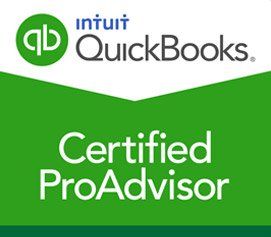Contemplating Refinancing Your Home Mortgage? Things You Should Consider
Since mortgage rates are still near record lows, now might be a good time to think about getting a new loan to pay off your old one. Even if mortgage rates are low and your friends, family, and coworkers are bragging about the low-interest rates they got when refinanced, it's not always a good idea to refinance.
This is because many factors must be considered before committing to a refinancing.

Cost to Refinance
The savings from a lower interest rate could be canceled out by the closing costs of a refinance, which could include title insurance, points, and other fees. Still, many loan companies offer ways to refinance with no fees, so it's important to look around. Some loan companies may advertise 0% interest rates but have very high fees.
Interest Rates
Obtaining a mortgage with a reduced interest rate is one of the primary advantages that may be gained from refinancing an existing mortgage. Your ability to reduce both your interest rate and your monthly mortgage payments as a result of the refinancing will determine whether or not you should go through with it. Some believe that your interest rate must drop by at least two percentage points before you should consider refinancing. In contrast, others maintain that reducing just one point in your rate is sufficient to justify the move.
However, you need to consider how much it will cost you to refinance as well as the impact that it will have on your taxes. To discuss these issues, set up a YokeTax consultation for free.
Credit Score
Some homeowners are concerned that the act of refinancing may harm their credit score. Your credit score will naturally decrease whenever you take on additional debt, which every lender must do, and all lenders will check your credit score. Refinancing, on the other hand, involves replacing an existing loan with a new loan for approximately the same amount. As a result, it does not significantly impact your credit score. Conversely, increasing the loan amount will harm your credit score.
Borrowing Additional Cash
Some lenders push the idea that you should take out more cash when refinancing. They suggest doing activities such as taking trips and shopping in your free time. Many borrowers have already forgotten the hard lessons they learned during 2004-2008, when home prices fell sharply, and people who used their home equity as a piggy bank ended up owing more on their home than it was worth. For good financial planning, you should pay off your house as soon as possible and avoid taking out loans against their value.
If you wish to borrow further funds, you should be aware that the interest you pay on equity-based debt is not tax-deductible. This means that if the amount of the replacement loan exceeds the amount paid off on the original loan, the interest on the equity debt (cash out) will not be tax deductible.
Example:
The first debt you took on was $300,000, which you used to buy your home. You've already paid off $100,000 of the loan, so you still owe $200,000. You refinance it for $300,000, and you get $100,000 in cash. So, two-thirds of the new loan is debt for the purchase, and one-third is debt for the equity. Because the loan is 1/3 equity debt, you can only deduct 66.67% of the interest you pay on it.
If the $100,000 loan were used to buy a house, the interest on the whole loan would be tax-deductible because it would be a loan used to buy the house.
Loan Term
A 30-year mortgage is often chosen by people who want to buy a home because it is the longest it can get. Most low-interest loans today have terms of 15 years. So, the shorter-term loan might not lower your mortgage payments, but depending on your situation, it might pay off your mortgage faster.
In 2018, the Tax Cuts and Jobs Act (TCJA) was passed by Congress and signed into law by President Trump. This law made it harder to extend the term of initial
acquisition debt. Here's a good example of this:
On January 1, 2010, a taxpayer bought a house with the help of a 20-year mortgage. The date to pay back the loan would be January 1, 2030. However, if the taxpayer refinanced the loan's amortized balance on July 1, 2021 into a 15-year loan with the same interest rate, 6.5 years would be added to the loan's original term. On July 1, 2036, the new loan would be paid off. But under the law as it is now, the interest on the refinanced loan will only be deductible for the length of the original acquisition debt. After January 1, 2030, the interest on the refinanced loan will no longer be deductible, so the interest on the loan will not be deductible for the next 6.5 years.
Itemizing Deductions
People who itemize their deductions instead of taking the standard deduction can write off mortgage interest payments. In 2021, a married couple who files taxes together can deduct a standard amount of $25,100. Whether you file as a single person or a head of household, you can take a standard deduction of either $12,550 or $18,800. People who are blind or older than 65 get these amounts, plus a small boost.
Paid-off mortgage interest, donations to charity, state, and local taxes (up to $10,000) can all be deducted as itemized deductions for most filers. After refinancing at a lower interest rate, you may find that your total itemized deductions are less than the standard deduction, even if they were just marginally more than the previous deduction. To put it another way, you can't deduct mortgage interest payments from your federal income taxes. You should be aware of the strategy of "bunching" deductions, which allows you to itemize one year and convert to the standard deduction the following.
If you have any further questions about refinancing your mortgage, set up a
free consultation with YokeTax.



